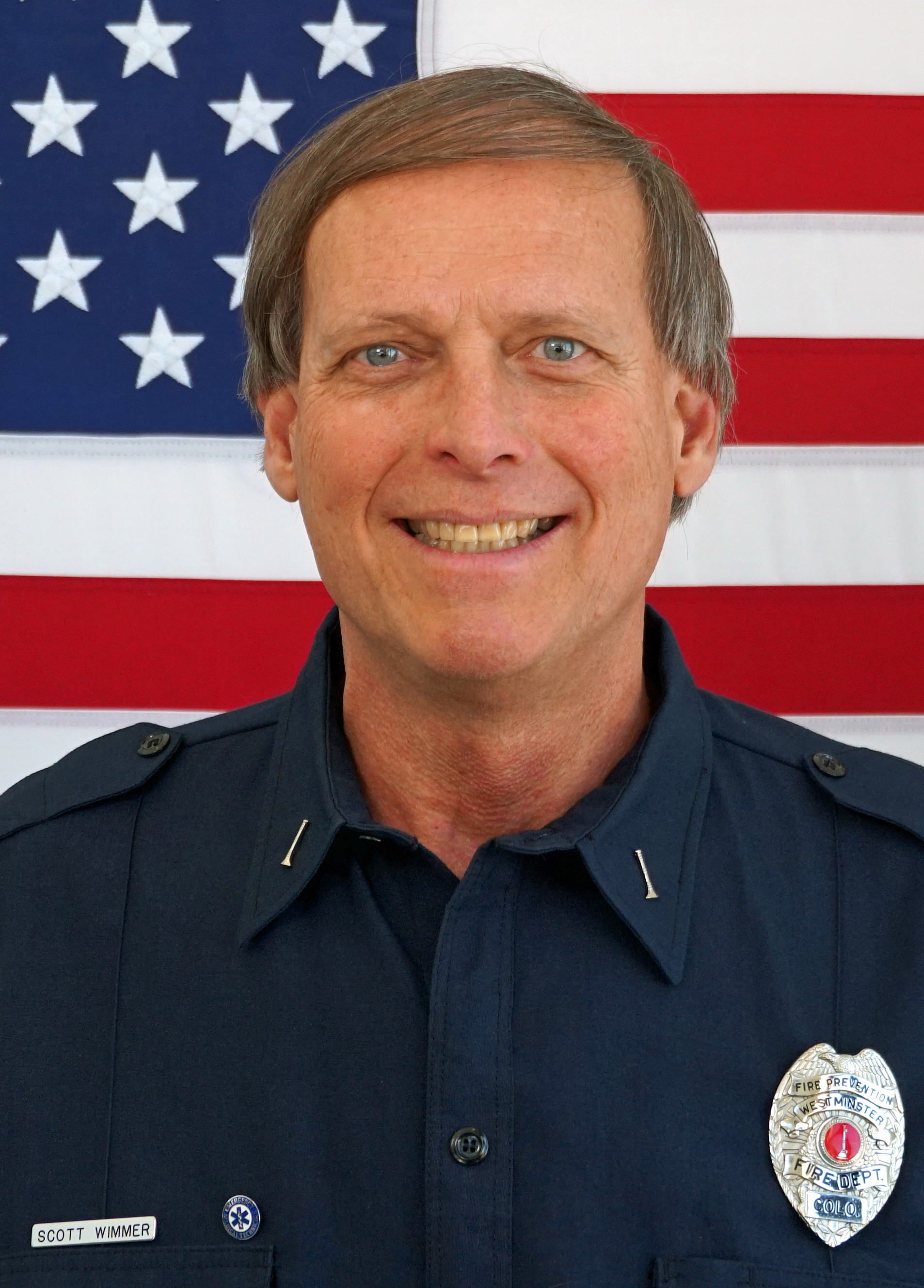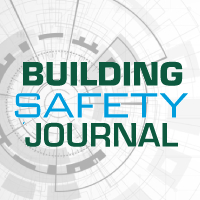
ICC Members: The individuals behind codes and safety — William Wimmer

![]() Code professionals ensure building safety today, for a stronger tomorrow. As the individuals behind modern codes and standards, these professionals are responsible for ensuring the safety and compliance of codes and standards, shaping the safety of the world around us, and serve as the safety foundation for our buildings. They don’t just ensure that buildings are constructed to withstand the stress of everyday use, they are behind the security and stability of every building. They specialize in preventative measures to help communities weather unforeseen natural disasters and ensure that first responders have less to worry about and can do their jobs safely. Code professionals are an essential piece in the building and construction puzzle and are engaged in the building process from the initial building plan to the finished product.
Code professionals ensure building safety today, for a stronger tomorrow. As the individuals behind modern codes and standards, these professionals are responsible for ensuring the safety and compliance of codes and standards, shaping the safety of the world around us, and serve as the safety foundation for our buildings. They don’t just ensure that buildings are constructed to withstand the stress of everyday use, they are behind the security and stability of every building. They specialize in preventative measures to help communities weather unforeseen natural disasters and ensure that first responders have less to worry about and can do their jobs safely. Code professionals are an essential piece in the building and construction puzzle and are engaged in the building process from the initial building plan to the finished product.
The International Code Council is a member-focused association with over 64,000 members dedicated to developing model codes and standards used in the design, build and compliance process to construct safe, sustainable, affordable and resilient structures. They protect the public through their commitment to building safety; enforce code compliance to empower and educate stakeholders across the built environment to embrace and integrate safety standards in their work; support economic development by making our buildings sturdier, and therefore longer lasting. Their knowledge, skills, and abilities impact every building, in every community.
The Code Council recognizes the importance of continuing to grow awareness of the important work that code professionals do and the impact they have, in the hopes of encouraging aspiring building safety professionals to join in on the building safety movement. In this exclusive feature for the Building Safety Journal, we asked William (Scott) Wimmer to share his experience in the industry, highlights of his professional career, and any insights or advice he has concerning the industry and the future of building safety.
William (Scott) Wimmer
Lt. / Fire Plans Analyst
Westminster Fire Department
Westminster, Colorado, United States
International Code Council member for 18 years
Colorado Chapter
BSJ: What was the path to your career — how and why did you pursue a profession in building safety?
Wimmer: I have been in the construction industry since I was a teenager. I have worked on concrete form crews, framing, and roofing crews. I have performed finish carpentry, worked in cabinet and fine woodworking shops, sign shops and as a ship carpenter in several boatyards. In my mid-twenties I became an EMT and ambulance driver in South Florida. I moved to Crested Butte, Colorado in 1986 and joined the Crested Butte Fire Protection District (CBFPD) as a volunteer EMT and eventually became a volunteer firefighter in addition to my primary vocation as a carpenter and fine woodworker. I retired as a volunteer firefighter/EMT in 2008 with the rank of Captain. In June of 2001, I made a shift from my woodworking career and was hired by the CBFPD as a Fire Inspector. Eventually, I attained the title of Deputy Fire Marshal in 2017. The Transition from fire suppression to fire prevention was a natural move as I got older. I found I could still save lives and property but now I was doing so before an emergency or tragedy occurred.
BSJ: What three things do you need to be successful in this industry and in your profession?
Wimmer: Integrity, professionalism, knowledge
BSJ: What role have mentors, advisors or your network played in your career?
Wimmer: When I first started as a fire inspector and plans reviewer, I was overwhelmed by the enormity of my job. I was humbled by the realization of how little I actually knew vs. what I thought I knew. I asked for help and guidance from numerous fire marshals, building code officials, planners, and specialists in the construction trades. Attending meetings and continuing education seminars expanded my network of colleagues and mentors. Without their help and insight, I would not be as effective and proficient as I am today.
BSJ: What led you to become an ICC member?
Wimmer: The ability to attain certifications and validation of my knowledge as a code official. By networking with other ICC members I have helped developers and builders find creative code compliant solutions for their projects.
BSJ: Are you involved in any ICC committees or councils? Do you have any ICC certifications?
Wimmer: Fire Inspector I, Fire Inspector II, Fire Plans Examiner, Certified Fire Marshal, Certified Building Official, Fire Code Specialist, Residential Fire Sprinkler Inspector/Plans Examiner & Residential Mechanical Inspector.
BSJ: How long have you been in the industry?
Wimmer: 44 years
BSJ: What major changes have you seen?
Wimmer: The shift to lightweight construction methods and materials. An increase in electronic submittals and moving away from paper and hard copy media to cloud-based storage. Increased scrutiny of public officials via social media. More in-depth chapters in the codebooks and more publications dealing with specific technologies i.e. alternative energy, energy storage systems, hazardous materials and processes, laboratories, fire-resistant construction, green building practices, increased testing, and listing of building component, etc.
BSJ: What excites you about the future of your industry?
Wimmer: 3-D printing providing more cost-effective building materials.
BSJ: What is one piece of advice that you would give to those starting out in the industry?
Wimmer: Realize that no one person can know it all. Develop relationships with other code officials, industry professionals, and people with high ethical standards. Create a network for collaboration. Take advantage of any opportunity to increase your knowledge and improve yourself.
BSJ: What do you see as most surprising about the work that you do?
Wimmer: The number of people (contractors, builders, developers, and the general public) that don’t appreciate the benefits of fire sprinklers and how fire suppression systems save lives, property, and money in the built environment.
BSJ: What would you like to do next in your professional/personal life?
Wimmer: Develop a consultation business. Provide mentoring for individuals starting out in code review and enforcement.
BSJ: What do you enjoy doing in your leisure time?
Wimmer: Hiking, camping, and enjoying nature. Spending quality time with family and friends.
If someone wrote a biography about you, what do you think the title would be?
Wimmer: Help Yourself by Helping Others
There’s a world of opportunity in being a member of the International Code Council. Membership provides the tools to get the most out of each workday: from discounts on essential International Codes and other publications to the best prices on top-quality training and ICC certification renewals, Code Council membership helps budgets go further. Exclusive member benefits include code advice from expert technical staff as well as access to member-exclusive news and articles at the Building Safety Journal news portal. Plus, only Code Council members vote in the ICC code development process. An online Career Center allows job postings and searches for new job opportunities — all at no additional charge.
The Code Council offers numerous councils, committees, and resources to help code professionals grow and network with colleagues. Six discipline-specific Membership Councils offer members a place to come together and be a more powerful force in shaping your association, your industry, your career, and your future. Code Development Committees are an instrumental part of the ICC code development process and are responsible for the review and evaluation of code change proposals submitted to the International Codes. Professional Development Committees serve to better align the ICC education programs and certification programs to ensure that quality training is available to meet the needs of all members, customers and certification holders. Finally, the Value of the Code Official toolkit helps members to heighten awareness of the importance of code officials to their communities and to highlight the code official’s role as a helpful advocate for community safety, health and welfare, and economic development.
To learn more about ICC membership, click here, or contact ICC Member Services by email or 888-ICC-SAFE (888-422-7233) ext. 33804.







